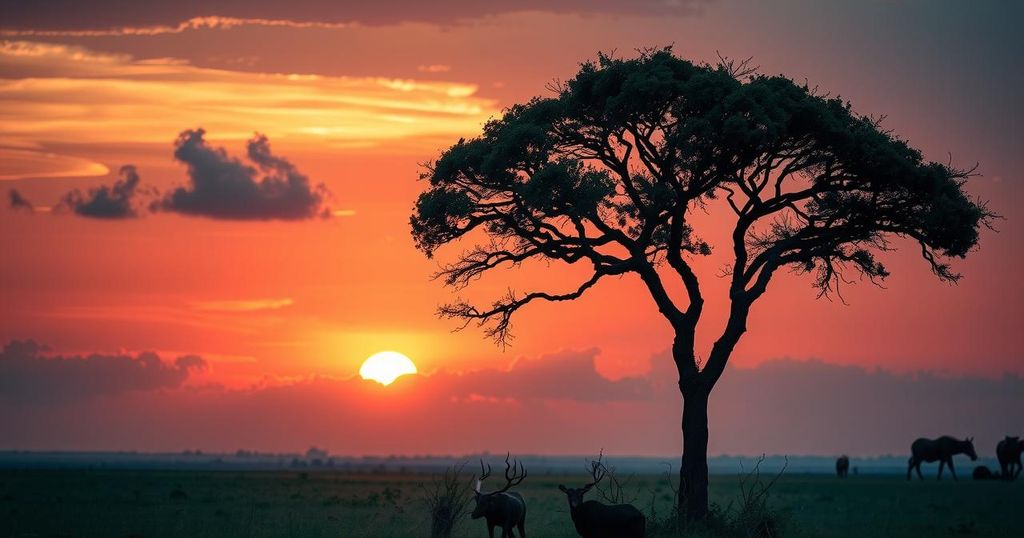Escalating Tensions: The Threat of Conflict Between DR Congo and Rwanda
Tensions between the DRC and Rwanda have escalated as the M23 rebel group seizes Goma, raising fears of a full-blown war. The conflict is fueled by resource exploitation and historical ethnic tensions, exacerbated by the DRC government’s corruption. International backlash against Rwanda’s actions is growing, while the humanitarian crisis continues to deepen as millions are displaced.
The ongoing tensions between the Democratic Republic of the Congo (DRC) and Rwanda have escalated dramatically, culminating in the M23 rebel group’s recent takeover of Goma in eastern DRC. This conflict, rooted in the region’s long history of violence and exploitation, raises urgent questions about the potential for another devastating war, as international pressures mount for Rwandan forces to withdraw. The humanitarian implications are severe, with eight million displaced citizens and rampant violence exacerbating the crisis.
Central to this conflict are factors such as the region’s rich mineral resources, including coltan and cobalt, crucial in modern technology. Rwanda accuses neighboring DRC of harboring remnants of Hutu extremists, while DRC alleges that Rwanda is exploiting M23 to seize control over lucrative mineral deposits. The interplay of these accusations intensifies the military confrontations, threatening further destabilization in the region.
Critics note flaws in the international response, particularly in how they portray the conflict. The DRC’s President, Félix Tshisekedi, rejected peace offers from M23 in previous years, opting instead for military solutions, leading to severe losses for his forces. As his administration deals with accusations of corruption, the plight of soldiers fighting for $100 a month stands in stark contrast to mercenaries receiving much higher compensation, further undermining morale.
The ramifications of this violent upheaval have devastating effects on civilians, with men wielding weapons committing horrendous acts, including sexual violence and looting. The potential for Rwanda to annex parts of Congolese territory under the guise of stabilizing the region raises alarms about long-term impacts on national sovereignty. Despite historic support from Western nations, Rwanda’s recent actions have led to a reevaluation of its perceived role as a stabilizing force in Central Africa.
As international demands for a ceasefire were partly heeded, the underlying challenges remain unaddressed. While the fragile agreement offers a temporary reprieve, a lasting resolution must tackle the deeper grievances fueling this bloodshed. Diplomatic efforts must prioritize establishing a framework that fosters genuine dialogue, reconciliation, and sustainable peace between the warring parties.
The crisis between the DRC and Rwanda is steeped in decades of conflict, ethnic tensions, and resource exploitation. The M23 rebellion is driven by both historical grievances tied to the Rwandan genocide and the struggle for control over valuable minerals that are increasingly in demand in the global market. This multifaceted situation presents a complex interplay of national and international interests, coupled with humanitarian disasters. The failings of governance in DRC exacerbate the crisis, reflecting the broader consequences of corruption and ineffective leadership in post-colonial African nations.
The deteriorating situation in eastern DRC requires urgent international attention and a comprehensive solution to prevent further escalation into a full-scale war. The failure of military strategies and the persistent humanitarian crises underscore the pressing need for diplomatic dialogue aimed at resolving the long-standing issues at the heart of the conflict. A concerted effort involving all stakeholders is essential to restore stability and security in the region.
Original Source: theweek.com




Post Comment